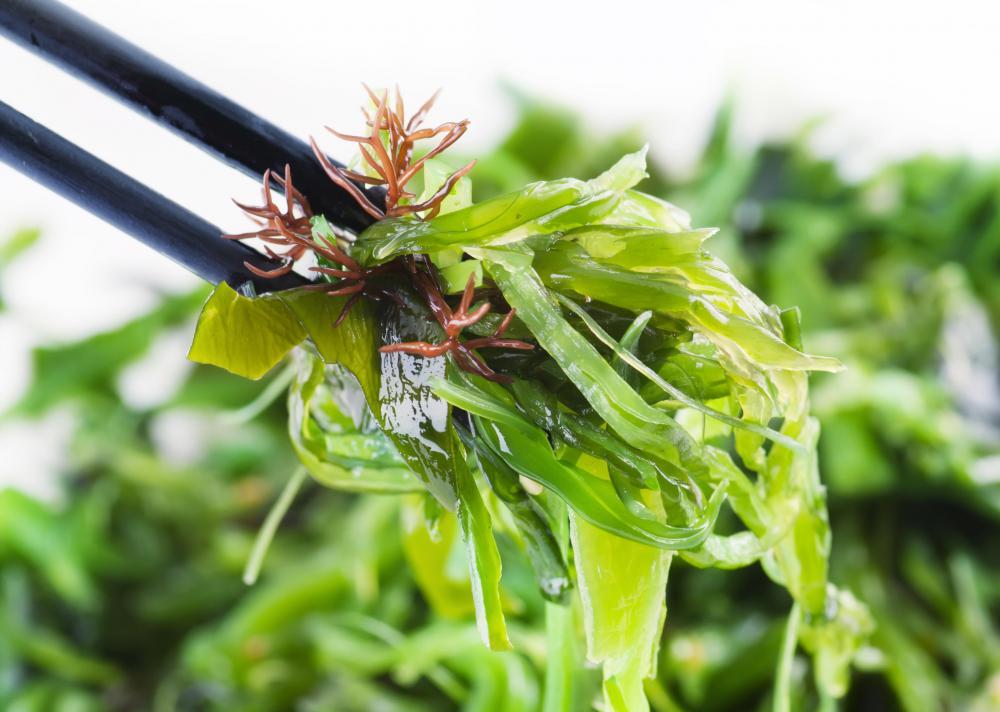At WiseGEEK, we're committed to delivering accurate, trustworthy information. Our expert-authored content is rigorously fact-checked and sourced from credible authorities. Discover how we uphold the highest standards in providing you with reliable knowledge.
What is the Connection Between Kelp and Iodine?
Kelp is a seaweed that grows in cool water along rocky coastlines. Iodine is a trace element required by the human body and found abundantly in kelp. A type of brown algae, kelp is high in many other vitamins and minerals as well, including phosphorus, iron, calcium, potassium, and vitamins A, B, C, D, and E. Perhaps one of the richest dietary benefits is the link between kelp and iodine. Iodine is essential for proper thyroid function, and iodine deficiencies can cause a multitude of problems including goiters and developmental delays.
Kelp is found in shallow, nutrient-rich salt waters. It is fast-growing and requires plenty of light. The seaweed thrives on sturdy, heavy rocks where it can grow without the threat of being uprooted and washed away by storms or disturbances. Kelp is an important member of the oceanic ecosystem, providing shelter and food to many fish, invertebrates, and sea mammals.

There are many health benefits of kelp and iodine. Iodine is essential for the human thyroid hormones thyroxine and triiodothyronine. These hormones are responsible for regulating metabolism as well as energy and bone growth. Kelp and iodine are often taken by people with under-active thyroid, as hypothyroidism can be caused by a deficiency of iodine in the body.

Kelp and iodine supplementation is a beneficial way to ensure that the proper amounts of many vital nutrients are present in the diet. Kelp is available in several different forms including kelp powder, kelp capsules and tablets, kelp extract, and both dried and raw kelp. It is not recommended to consume more than the maximum upper intake levels of kelp and iodine, as iodine toxicity can inhibit the thyroid hormones and cause discomforts such as abdominal pain, vomiting, and diarrhea.

Iodine deficiency can lead to different health problems. When the demand for thyroid hormone is greater than the body can produce due to a lack of iodine, the thyroid gland enlarges. This is known as a goiter. Because of the location of the thyroid, swelling of this gland leads to an enlarged neck and difficulty breathing or eating. Depending on the size and severity of the goiter, treatments include oral iodine, hormone replacement therapy, and surgery.
Another problem caused by the need for iodine is a syndrome called cretinism. This severe result of the lack of iodine causes deformities of the skeleton, particularly the skull. Cretinism can result in dwarfism and very serious developmental delays. Iodine deficiency and cretinism are not common in areas of the world which utilize iodized salt, a program introduced to combat the goiters and developmental delays caused by a lack of iodine in the diet.
AS FEATURED ON:
AS FEATURED ON:













Discuss this Article
Post your comments